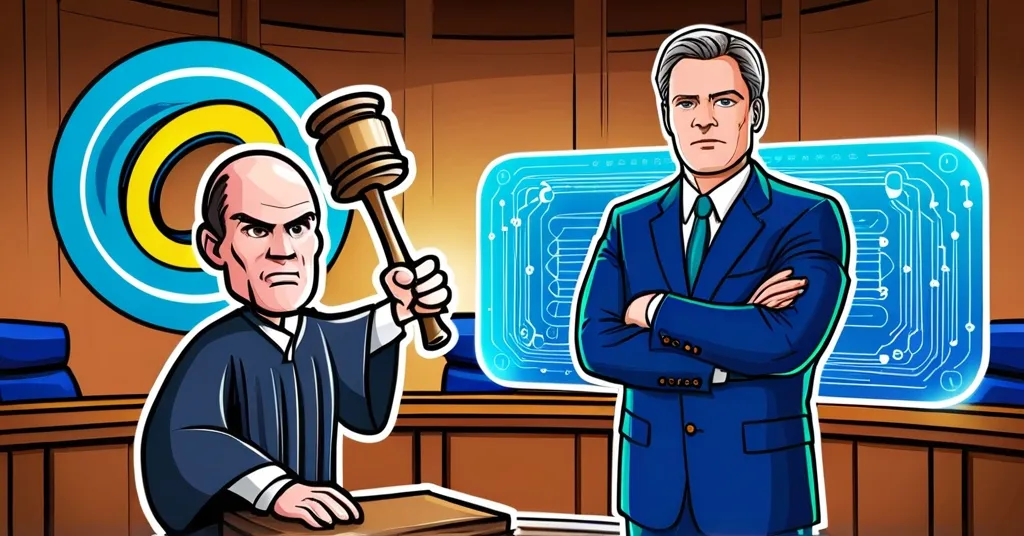Tornado Cash Co-Founder Challenges Charges: A Defining Moment for Crypto Privacy and Regulation

Tornado Cash Co-Founder Fights Back: A Landmark Case for Crypto Privacy and Regulation
In a pivotal moment for the cryptocurrency world, Roman Storm, co-founder of Tornado Cash, has filed a motion to dismiss criminal charges, asserting that a U.S. appeals court ruling undermines the legal foundation of the case against him. The Fifth Circuit Appeals Court recently determined that sanctions on Tornado Cash’s unchangeable smart contracts were unlawful, setting the stage for a significant legal battle.
- Roman Storm seeks dismissal of criminal charges after court ruling.
- Smart contracts deemed unchangeable and not subject to U.S. sanctions.
- Legal focus on the International Emergency Economic Powers Act (IEEPA).
- Accusations involve unlicensed money transmitting and money laundering.
- Tornado Cash allegedly laundered over $7 billion in cryptocurrency.
Legal Background
The charges against Storm include operating an unlicensed money-transmitting business and conspiracy to commit money laundering, underpinned by the International Emergency Economic Powers Act (IEEPA), a U.S. law designed to regulate economic sanctions. The U.S. Department of Justice had accused Storm and his co-founders of facilitating illicit transactions, some reportedly linked to North Korean hackers.
Tornado Cash, a platform known for mixing cryptocurrency to hide transaction origins, became the target of sanctions imposed by the Office of Foreign Assets Control (OFAC) for its alleged role in laundering over $7 billion. The service allows users to obscure the origins of their cryptocurrency, enhancing privacy but also attracting misuse by criminals.
Court Ruling Implications
The Fifth Circuit’s decision focused on the immutable nature of Tornado Cash’s smart contracts, which are pieces of code on the blockchain that execute transactions automatically and cannot be altered post-deployment. The court emphasized that the creators, like Storm, have no power to stop these contracts once they are running, making them resistant to traditional regulatory mechanisms.
This ruling challenges the applicability of sanctions under the IEEPA to decentralized and unchangeable blockchain technologies, raising questions about how existing laws can regulate such innovations. As the court succinctly put it, “Mr. Storm could no more choose to stop them than he could choose to stop the sun from rising.”
Future of Crypto Privacy
The ongoing legal saga of Tornado Cash’s founders, including Roman Semenov, currently a fugitive, and Alexey Pertsev, in pre-trial detention, highlights the complex interplay between technological advancement and regulatory oversight. This case presents a litmus test for the crypto industry, as courts and regulators worldwide grapple with the challenge of balancing privacy and legal compliance.
With privacy-focused technologies coming under increasing scrutiny, the outcome of this case could have far-reaching implications for the future of digital finance. Critics argue that while privacy is essential, it should not facilitate crime. Meanwhile, proponents of crypto privacy emphasize the need for innovation and protection from overreach. For more insights on these debates, see the discussion on Crypto Privacy regulation.
Key Takeaways
- How can unchangeable smart contracts be regulated within existing legal frameworks?
- What balance should be struck between privacy and compliance in cryptocurrency transactions?
- Does this court ruling set a precedent for the treatment of other decentralized technologies?
This unfolding story is not just a legal drama but a crucial moment for understanding how the legal system will adapt to the challenges posed by blockchain innovation. The resolution of this case could prompt a reevaluation of the intersection between privacy rights and regulatory responsibilities, shaping the future landscape of cryptocurrency and blockchain technology. For further reading on the implications of the court ruling, check out the detailed analysis on Roman Storm court ruling implications.



